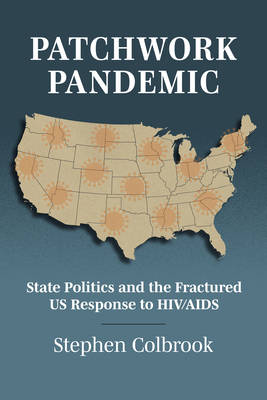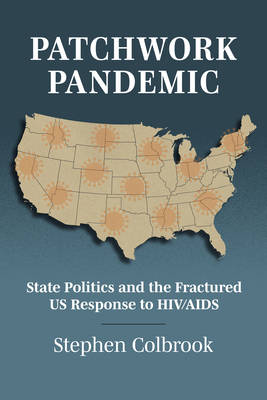
- Afhalen na 1 uur in een winkel met voorraad
- Gratis thuislevering in België vanaf € 30
- Ruim aanbod met 7 miljoen producten
- Afhalen na 1 uur in een winkel met voorraad
- Gratis thuislevering in België vanaf € 30
- Ruim aanbod met 7 miljoen producten
Omschrijving
Patchwork Pandemic is the first ever history of how individual American states responded to the HIV/AIDS crisis--and an eyeopening look at how a fragmented federalist system creates disparities in public health policy.
Public health in the United States has long been rife with inequity due to a federalist system that relies on state and local governments to bear the bulk of the responsibility for addressing crises, as seen in the 1918 outbreak of influenza and, most recently, in the COVID19 pandemic. The HIV/AIDS crisis is a classic example of this enduring problem, though the variation in state responses to HIV has not received the attention it deserves.
Patchwork Pandemic provides the first statelevel history of the AIDS crisis in the United States. It is wellknown that the federal government's response to HIV was painstakingly slow, partly because the disease disproportionately affected stigmatized minorities--especially gay men and IV drug users. Rebuffed at the national level, AIDS activists and policy elites turned to state legislatures to address a host of concerns stemming from the pandemic, including the high cost of drug therapies, the rampant discrimination experienced by those suspected of infection, and the housing and healthcare needs of people living with HIV.
Anchored in case studies of California, Illinois, and Texas, Patchwork Pandemic argues that the states--not the federal government--were at the vanguard of the political and policy response to the epidemic in the 1980s and early 1990s. But this fractured and decentralized system produced a dangerous lack of coordination between different tiers of the United States government, leading to vast geographic inequities in morbidity and mortality rates. As both HIV/AIDS and COVID19 have starkly exposed, pandemics are not merely a function of individual microbes and pathogens; they also reflect how states and governments wield power.
Specificaties
Betrokkenen
- Auteur(s):
- Uitgeverij:
Inhoud
- Aantal bladzijden:
- 272
- Taal:
- Engels
- Reeks:
Eigenschappen
- Productcode (EAN):
- 9780700641086
- Verschijningsdatum:
- 10/03/2026
- Uitvoering:
- Hardcover
- Formaat:
- Genaaid
- Afmetingen:
- 152 mm x 229 mm

Alleen bij Standaard Boekhandel
Beoordelingen
We publiceren alleen reviews die voldoen aan de voorwaarden voor reviews. Bekijk onze voorwaarden voor reviews.








